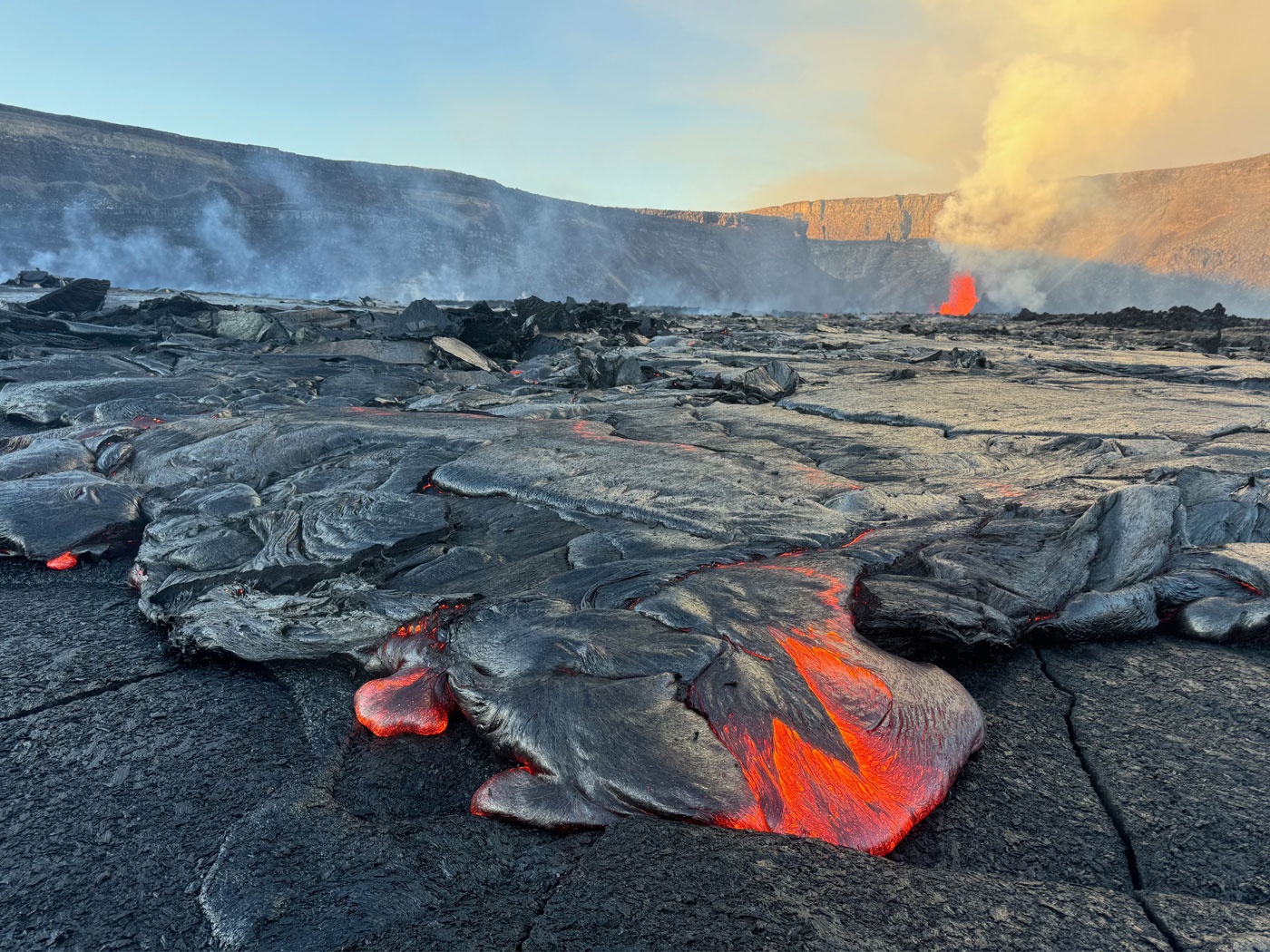The greatest point of contention in the debate over “global warming” or “climate change” is not whether or not a significant increase in atmospheric carbon dioxide (CO2) would warm the planet. Carbon dioxide is a “greenhouse gas” that is very effective at absorbing and emitting infrared radiation, and so both sides in the debate generally agree that increased atmospheric CO2 would cause moderate warming, if everything else in the climate system were to stay the same.
Low climate sensitivity is consistent with evidence that our climate system “self-regulates” to avoid extremes. ![]()
However, the climate system is very complicated. Some processes tend to amplify any such warming and others tend to counteract that warming. The real issue centers around this question: How sensitive is the climate to changes in atmospheric CO2? Those who are very concerned about global warming believe that climate “feedbacks” would enhance warming due to increased atmospheric CO2, possibly to dangerously high temperatures.1
A quantity called the “equilibrium climate sensitivity” measures the sensitivity of Earth’s climate to increases in atmospheric CO2.2 Here we will denote it by the Greek letter lambda: λ. It’s defined as the equilibrium change in Earth’s global average surface temperature if the amount of atmospheric CO2 were to double. Estimates of λ obtained from computer-climate models tend to be on the high side, suggesting that the climate is quite sensitive to changes in atmospheric CO2. However, as noted by well-known meteorologist, climatologist, and NASA scientist Dr. Roy Spencer, these high estimates do not result from basic physics, but rather from assumptions and “parameterizations” within the models that have been adjusted to give results that “seem right” to the modelers.3
A recent paper by Nicholas Lewis and Dr. Judith Curry (a former climatology professor at the Georgia Institute of Technology4) is an attempt to use historical climate data and the principle of “energy balance” or “conservation of energy” to more accurately estimate the equilibrium climate sensitivity.5 In principle, this estimate of climate sensitivity should be much more reliable than estimates obtained by computer models. Lewis and Curry concluded that climate sensitivity is relatively low, with the value of λ at about 1.66 °C. To put this number in perspective, it’s usually claimed that λ is likely between 1.5 and 4.5 °C, so this estimate is at the low end of that range.5
Although this is by no means the first published estimate of climate sensitivity, Dr. Spencer noted that it was significant for two reasons. First, the result was published in a well-known “mainstream” journal. Second, Lewis and Curry took great pains to address the uncertainties and possible objections to their calculations. Although Spencer didn’t necessarily consider their estimate airtight (due to some factors that are essentially unknowable), he went so far as to describe their paper as “seminal.”3
Low climate sensitivity is consistent with evidence that our climate system “self-regulates” to avoid extremes.6 For instance, some desert areas are shrinking in size, as the amount of nearby vegetation increases, and this increase seems to be a response to increased atmospheric CO2.7 The additional vegetation will, in turn, pull CO2 out of the atmosphere.
Earth and its climate system were designed by an all-knowing, loving Creator who promised us a degree of climate stability. ![]()
That the climate system would be relatively insensitive to such changes is expected by biblical creationists. Since Earth and its climate system were designed by an all-knowing, loving Creator who promised us a degree of climate stability (Genesis 8:22), one would expect the climate to be relatively insensitive to changes that would tend to push it toward extremes.
References
- Spencer, R. Global Warming 101. Roy Spencer, Ph.D. Global Warming. Posted on drroyspencer.com, accessed June 8, 2018.
- Cupps, V. R. and J. Hebert. 2016. A Realistic Look at Global Warming. Acts & Facts. 45 (4): 10-13.
- Spencer, R. New Lewis & Curry Study Concludes Climate Sensitivity is Low. Roy Spencer, Ph.D. Global Warming. Posted on drroyspencer.com April 24, 2018, accessed May 23, 2018.
- Hebert, J. 2017. Well-Known Scientists Resigns, Cites Climate Craziness. Creation Science Update. Posted on ICR.org January 19, 2017, accessed May 23, 2018.
- Lewis, N. and J. Curry. 2018. The impact of recent forcing and ocean heat uptake data on estimates of climate sensitivity. Journal of Climate. doi:10.1175/JCLI-D-17-0667.1. Published online April 23, 2018, accessed May 23, 2018.
- Thomas, B. 2009. Does Earth Balance Carbon Dioxide Levels Automatically? Creation Science Update. Posted on ICR.org January 12, 2009, accessed May 23, 2018.
- Thomas, B. 2013. Global Warming? Trees to the Rescue! Creation Science Update. Posted on ICR.org July 22, 2013, accessed May 23, 2018.
*Dr. Jake Hebert is Research Associate at the Institute for Creation Research and earned his Ph.D. in physics from the University of Texas at Dallas.


















